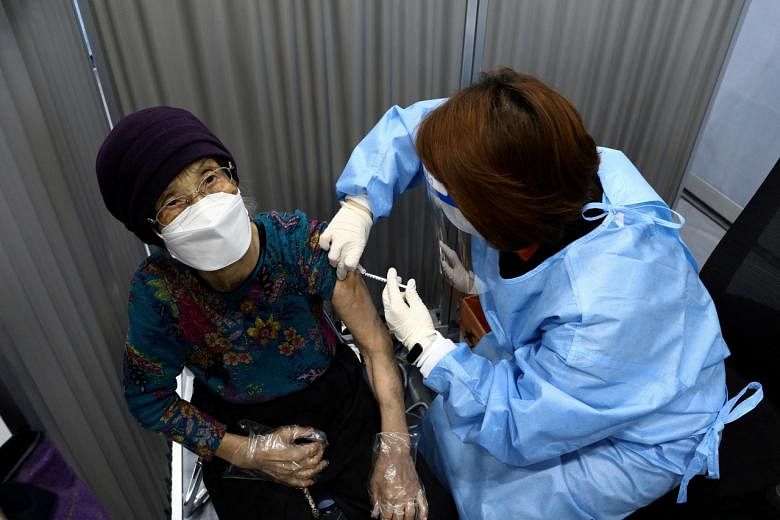SEOUL (REUTERS) - South Korea plans to cut to four months from six the gap for coronavirus booster doses given to senior citizens as it looks to dampen a spike in serious cases, authorities said on Wednesday (Nov 17).
After managing to keep infections relatively low with aggressive testing and tracing, authorities are now grappling with a surge in critical cases since an easing of distancing rules this month under a "living with Covid-19" scheme.
More than 90 per cent of South Korean adults have been vaccinated, but breakthrough infections have been growing among elderly people, straining the medical system.
The Korea Disease Control and Prevention Agency (KDCA) said it has decided to shorten the dosing interval for booster shots for people aged 60 or older and those who live or work at nursing homes and other vulnerable facilities to four months.
People in their 50s and primary groups including soldiers, police and firefighters can now get another jab five months after their last shot.
"Despite our high vaccination rate, we've confirmed clear rises in breakthrough infections among senior generations four months after they got the shot," KDCA chief Jeong Eun-kyeong told a briefing.
"There is also a growing need for additional vaccination doses due to declining immunity from the Delta variants and as time passes."
The KDCA reported 3,187 new cases for Tuesday, the highest daily tally since 3,270 recorded on Sept 25, including the most ever serious infections of 522.
More than 82 per cent of all serious cases reported this week are from elderly people, compared with around 65 per cent a month ago, the KDCA said.
Hospital beds are being filled rapidly around the greater Seoul area, with only about 30 per cent of intensive care units (ICUs) left available.
The KDCA said it will consider issuing a circuit breaker on the relaxed distancing curbs if more than 75 per cent of ICU beds are used nationwide and other factors pose high risks.
Nearly 13.8 million people will be able to get a booster shot by the end of this year, the KDCA said.











